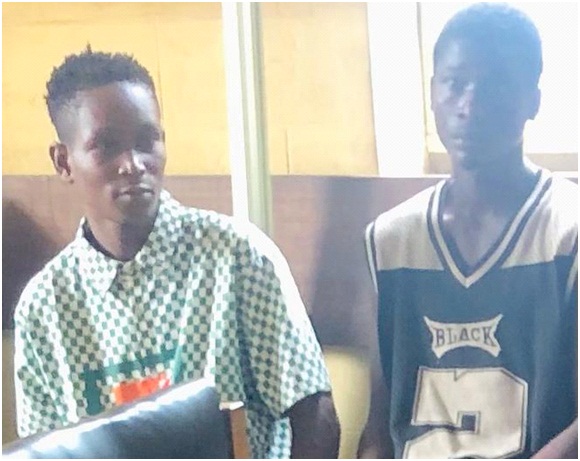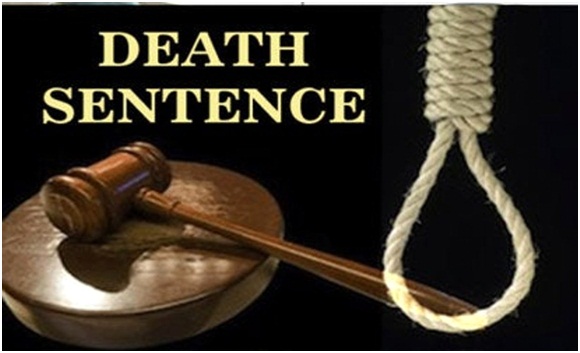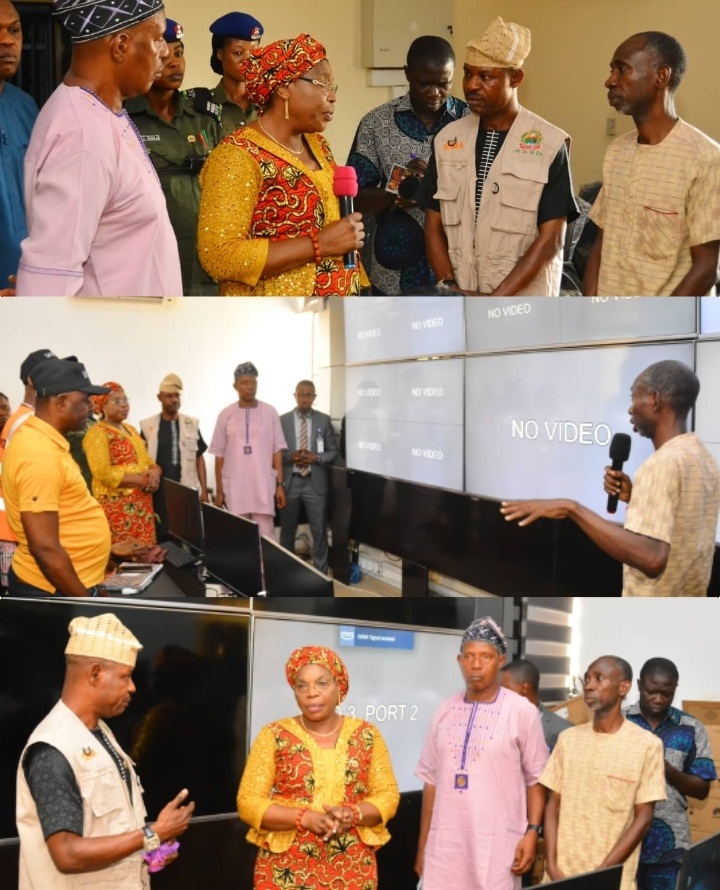2023 and Pumpkinification of Chatham House
Busuyi Mekusi
E. Lynn Harris’ In My Father’s House typifies some of the experiential complications of identity and filial tensions that contentious decisions do precipitate in family relationships. This accounts for the frustrations and disillusionment that Bentley Dean, the leading character in the text, plunged into after transgressing oppositional relationship to subscribe to a queer one. Just like this misadventure of Bentley, individuals and group of individuals do selfishly take steps that would either overtly or covertly hurt them and others. It is for this and many others that the macabre dances of Nigerian politicians have largely been adding salt to injury somewhat; from the centralisation of personal ambition and ownership to ethno-religious manipulations of would-be electorate that are more confused than a seismic notation of an old order.
The socio-political and economic conditions in Nigeria clearly exemplify the artistic reflections in Amaka Igwe’s “Fuji House of Commotion”, a Nigerian sitcom and soap opera that dominated the television space in the nineties, when most Nigerians were still veiled from liberally gazing into the digital cultural supermarket. Chief Fuji’s family, dexterously acted by Kunle Bamtefa, with four wives and many noisy intriguing children to cater for, is a worthy signification of the multi-ethnic nation like Nigeria, held down by the hullaballoo of unfavourable treatment and disproportional access to opportunities. Apart from the killings occasioned by farmer-herders clashes, banditry attacks, kidnapping and attendant avoidable deaths are now recurring decimals at a time governments could only lament and issue regurgitated condolences and assurances. In spite of the good efforts made by the PMB government, Nigeria continues to tilt towards a pariah state; with leadership locutions devoid of solutions!
The concept of house has been widened above a space for shelter, to include the place of authority, identification and solidarity. Even though houses could be used to celebrate candour, and inscribe economic status, with such defining the wealth of an individual or a family, a house could also get out of tune or fall into dilapidation, due to various reasons, which include lack of maintenance, as common in Nigeria, or advancement in architectural currency. The size of a house is usually both for the reason of need or recklessness cum arbitrariness, owing to poor exercise of discretion by people that respond more to impulse or social requirements than reason and necessity. The importance of a house is stressed in the homily of Jesus to his followers that there are many mansions in his father’s house. A house could as well remain a temporary abode, as the owner and occupiers could suffer displacement for various reasons. The house stands poles’ apart from the idea of a home.
Chatham House has suddenly become a veritable space for Nigerian potential leaders seeking votes during elections. The fierce political battles that inevitably led to the dethronement of an incumbent in 2015 had as one of the complements visits by representatives of the Jonathan administration, particularly the mounting of the Chatham House podium by Sambo Dasuki to hint at the postponement of the general elections, purportedly due to insecurity. The major opposition political party’s presidential candidate, Muhammadu Buhari, was also at the Chatham House to outline his manifestos to the world and Nigerians. It was believed that this engagement substantially contributed to the support the opposition got from outside, particularly with people irked by the palpable lacklustre performances of Goodluck Jonathan. Seven years down the line, one could conclude that pre-election promises are most times sugar-coated poisoned candies, used surreptitiously to sway the opinions of unwary electorate.
Chatham House is a reputable independent British policy institute given to robust debate and dialogue on how people, societies and governments could come to terms with the changing challenging world. The organisation gives its credentials to include providing “thought leadership on key issues that defined the 20th century”, and helping “craft the multilateral institutions and mechanisms of global financial stability after the Second World War”, with requisite commitment to give “African independence leaders a platform throughout decolonisation”. Chatham House similarly opined that its “three second century goals are intended to enable and build peaceful, sustainable and inclusive societies”.
With the lofty ideals of Chatham House, one would care less about the frequency with which major presidential candidates in the forthcoming general elections have patronised the institution. Whereas opposition elements claimed that Atiku’s visit to what is analogous to a modern political shrine was colourless, the visit of the APC candidate, Bola Tinubu, received reverberating chattering, as detractors blamed him for chartering some of his handlers to speak on matters that should have received his attention. It is very predictable that anytime Peter Obi honours the invitation extended to him by Chatham House, the visit would similarly receive the evaluating attention of oppositions, as the verdict would predictably be negative. Even though de-marketing one’s opponents is a great hallmark in party politics, the fixation on character assassination by Nigeria politicians seems to be a deliberate attempt to veil lack of ideology and verifiable campaign promises by candidates and their political parties.
Notwithstanding the propensity of talking to outsiders inhered in the visits to Chatham House, the engagements on this colonial spatial hegemonic platform is suggestive of the potency of neo-colonialism and disruptive prescriptive place of interlopers, who have particularly assumed the place of democratic supervisors across the world. It is instructive to note that constant contestations are important in ensuring liberalisation in opinions and human administration. The foregoing necessity informed the confrontation of the monarchical order in Britain by Parliament, with the abolition of office of the king in 1649. If the recalcitrance of Oliver Cromwell invariably led to the idea and notion of popular democracy in England, the deliberate suffocation of Nigerians, and their seemingly helplessness, might be a sorry commentary of a people that are so scared to dare.
With the apparent pumpkinification of Chatham House, there have been efforts by major presidential candidates, particularly Tinubu, to domesticate political engagements through the use of town hall meetings. Analogous to the characterisation of the audience at Chatham House, the select members of the audience at these town hall meetings are similarly believed to be sympathetic to the course of the candidate engaging with them. The most contentious aspect of the interface of presidential candidates with electorate is the resolve of Tinubu campaign organisation that its principal would not attend any media interaction, due to purported conspiracy by some media organisations to undermine Tinubu’s personality. Arise TV and some of its high-ranking staff like Rufai Oseni and Reuben Abati have been in the eye of the storm lately too. One needs no star gazer to decipher that media ownership globally, particularly in Nigeria, is antithetical to free quality press. As media houses take sides politically, we must hope that judges would not!
Apprehensions about the 2023 elections continue to rise, given the spate of attacks on INEC facilities across the country. The unquestionable and undeniable accusation levelled against politicians by the INEC chairman, Mahmood Yakubu, about their culpability in the ferocious arsons on the commission’s facilities does not just signify the reprehensible attitudes of politicians, but is suggestive of the desperation for the acquisition of political powers that would not necessarily be used for the good of the majority of Nigerians.
Political stakes in Nigeria remain very high because of the attractions and perquisite of political offices, amidst abjectly multi-dimensionally 133 million poor Nigerians. The administration of petroleum products is still a nightmare, in apparent show of greed, corruption and ineptitude. Oil thefts subsist, as alleged bogus fuel subsidy payment helps feather more personal pockets. From the chanting or chatting in Chatham House, to the grunting at town hall meetings, members of the political class have perfected their game of firm subjugation, whereas common Nigerians remain under their firm grip, divided by ethno-religious considerations, and forlornly hopeless hopes.
Arewa House, the centre for research and historical documentations in Zaria, has also been a fulcrum for political engagements about Nigeria project, just that all the available houses have been turned to zones for talking above the heads of commoners. The 2023 votes would come from the downtrodden, and not the elite class whose horns are intricately locked in the battle to grab Nigeria ‘cooking pot’, with great expectations about allocation of juicy lots after the conquest, with the poor defined by hopes of the living dead.
In our father’s house in Nigeria, there is loud commotion, caused by noisy chattering that buries songs of pains and anguish, which may not be either assuaged by Chatham or Arewa Houses. Is this how we would continue to swirl, tilting on the precipice, scared of possible cascading, presided over by leaders without ladders? Compliments of the season, without completing the mess of seesaw!










